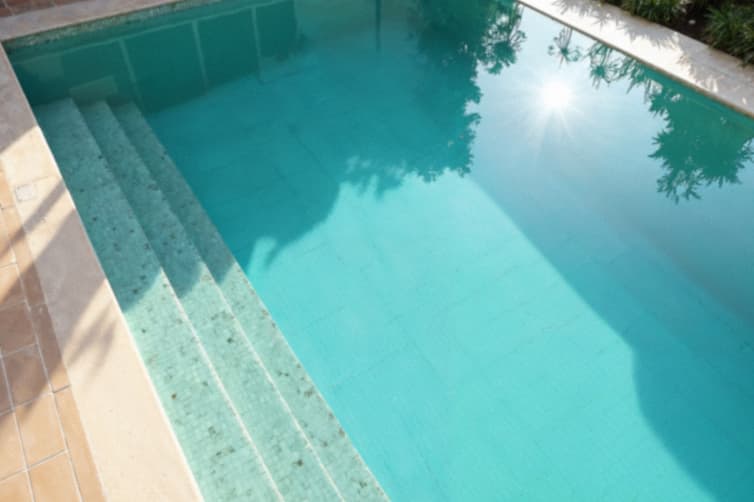5 Common Pool Leaks & How We Fix Them

A swimming pool is one of the best investments for comfort, recreation, and luxury especially in Dubai’s warm climate. But even the most well-built pools can develop leaks over time due to wear, shifting ground, or small cracks. While a minor leak might seem harmless, it can lead to costly repairs, increased water bills, and even structural damage if left unaddressed.
In this post, we’ll break down the five most common pool leaks, how professionals identify them, and the expert repair methods that ensure your pool stays watertight and worry-free.
Pool Plumbing Leaks
- Sudden drop in water level even when the pool is not in use
- Air bubbles in the return jets
- Gurgling noises from the plumbing lines
- Excess moisture or soggy patches around the pool area
Pool Shell Cracks
- Visible cracks along the pool walls or floor
- Water loss that continues even when pumps are off
- Discoloration or algae growth around the crack
Pool Skimmer Leaks
- Noticeable water loss near the skimmer area
- Damp soil or cracks around the skimmer box
- Air being sucked into the pump system
Pool Light Leaks
- Water level drops until it reaches the light fixture
- Air bubbles seen around the light housing
- Visible moisture or corrosion inside the light niche
Pool Tile and Fitting Leaks
- Missing or cracked tiles around waterline
- Watermarks or wet spots behind pool walls
- Reduced water pressure at return jets
How We Detect Pool Leaks, The Smart Way
- Acoustic leak detection using specialized sensors
- Dye and pressure testing for plumbing and shell leaks
- Thermal imaging for underground moisture mapping
Why Professional Leak Repair Matters
- DIY fixes might seem appealing but often offer only temporary relief. Pool leak repairs require a detailed understanding of hydraulics, construction materials, and sealing techniques. Professional repair ensures:
- Long-lasting results with minimal disruption
- Prevention of recurring leaks
- Reduced water and chemical waste
- Preservation of your pool’s structural integrity
Final Thoughts
Pool leaks are more than just an inconvenience, they can lead to water waste, higher maintenance bills, and long-term damage if ignored. The good news is that with the right pool maintenance contractors and advanced detection tools, these problems can be resolved quickly and effectively.
At Pool Tech Dubai-one of the best swimming pool company in Dubai, we specialize in precise leak detection, efficient repair, and preventive maintenance, ensuring your pool remains safe, efficient, and ready for every season.
FAQs
- How can I tell if my pool is leaking or just losing water through evaporation?
If your pool loses more than ¼ inch of water daily, even when unused, it may indicate a leak. You can confirm with a bucket test, fill a bucket with pool water and place it on a pool step. If the pool water drops faster than the bucket water, there’s likely a leak
- What is the most common cause of pool leaks in Dubai?
The most frequent causes are plumbing line cracks and skimmer seal damage, often due to soil movement or heat expansion. Dubai’s climate can cause minor material shifts that eventually lead to water leakage. - How long does professional pool leak detection take?
Most leak inspections take 2–4 hours, depending on the pool size and accessibility. Advanced detection tools allow technicians to identify leaks accurately without draining the pool. - Can a pool leak increase my utility bills?
Yes. A continuous leak not only wastes water but also disrupts your chemical balance, making your filtration system work harder. This can significantly increase water and electricity costs over time. - How much does pool leak repair cost in Dubai?
The cost varies based on the leak’s location and severity. Minor surface cracks may cost a few hundred dirhams to fix, while underground plumbing leaks can require more extensive work. Professional inspection is the best way to get an accurate estimate.

